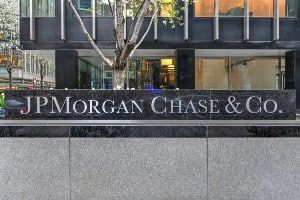
More than forty years have passed since the Iran hostage crisis, and just this week the investment bank JP Morgan Chase found out it will not have to defend itself against a class action that alleged its former CEO’s actions led to the capture and torture of hostages in the Iranian embassy in 1979.
In an opinion published Friday, New York Federal Judge Lewis J. Liman said he was granting the bank’s motion to dismiss a proposed class action brought by three former hostages and their families, saying the statute of limitations has expired for their claims, Law360 reported.
The lawsuit alleged that, when JP Morgan Chase was called Chase Manhattan, its CEO David Rockefeller conspired to bring the Shah of Iran into the United States after he was overthrown during the country’s 1979 revolution.
Plaintiffs said that decision led to the hostages’ capture at the U.S. Embassy in Tehran, when armed Iranian militants took 66 people hostage.
Fourteen hostages were released over the next year, but 52 were held in captivity for 444 days, with some hostages kept in solitary confinement and beaten, others attempting suicide. The lawsuit also accused Rockefeller of sabotaging hostage release negotiations for the financial gain of the bank, which prolonged their captivity and torture.
The plaintiffs had argued in a June 2020 complaint that their claims arose in 2019, when The New York Times revealed a “secret history” called the Project Eagle papers, from the offices of Mr. Rockefeller, previously kept under seal at Yale University.
The story describes how Chase Manhattan Bank and its “well-connected chairman” worked behind the scenes to persuade the Carter administration to admit the Iranian Shah — one of the bank’s most profitable clients — into the United States, against Iran’s wishes.
At the time, the country was rising up against the Shah’s 38 years of iron-fisted rule. Soon after the Shah’s escape to America, the U.S. Embassy was overrun.
However, the judge said the plaintiffs’ statute of limitation to bring a case against the investment bank for conspiracy to impede or injure an officer of the United States was long past due, even if they only recently found out the bank’s chairman was responsible.

He said the three-year deadline does not begin when the plaintiff knows the defendant has caused their injury. Rather, the judge said, it runs upon discovery of the injury itself, which was when the hostages were released on Jan. 20, 1981, Law360 reported.
“It does not matter that, at the time, plaintiffs were not aware that the injury was a consequence of a conspiracy by two or more persons in the United States or a territory of the United States,” Judge Liman said.
“Plaintiffs need not know of their cause of action for the statute of limitations to run.”
He also said in his opinion that former Chase Vice President Joseph Reed’s failure to speak to investigators or allow the publication of the Project Eagle papers earlier didn’t qualify as acts affecting the plaintiffs’ ability to file a suit, Law360 reported.
The plaintiffs alleged Chase had financial interests in preserving the Iranian monarchy. The bank processed billions of dollars in oil revenue for the National Iranian Oil Company, handled the shah’s family fortune and helped form the International Bank of Iran, in which it owned a 35% share, the complaint stated.
“Protecting those business interests meant protecting the Shah,” the plaintiffs said, adding that the bank had a direct interest in the outcome of the hostage talks.
“The hostage talks threatened to undermine Chase’s efforts to use Iranian foreign assets to pay off Iran’s debts. The Islamic Republic of Iran was demanding the repatriation of billions of dollars of funds deposited in foreign banks — notably Chase — under the Shah’s regime.”
Their complaint included various negligence claims, as well as claims of false imprisonment and intentional and negligent infliction of emotional distress, Law360 reported. They had sought damages, interest, attorney fees and costs.
The plaintiffs were represented by Brent W. Landau, Walter D. Kelley Jr. and Scott A. Gilmore of Hausfeld LLP and Terrance G. Reed, V. Thomas Lankford Jr. and Robert K. Moir of Lankford & Reed PLLC.
The JP Morgan Chase Iran Hostage Class Action Lawsuit is David M. Roeder et al. v. J.P. Morgan Chase & Co. et al., Case No. 1:20-cv-02400, in the U.S. District Court for the Southern District of New York.
Read About More Class Action Lawsuits & Class Action Settlements:
- Grand Coulee Dam Will ‘Permanently Destroy a Culture,’ Says Spokane Tribe Lawsuit
- Judge Approves $612K Class Action Settlement In Cruise Ship Workers’ Fight Over Alleged Unpaid Work
- How to Avoid Foreign Transaction Fees Online
- Report: Holding LDS Church Accountable for Sex Abuse Claims is Challenging















One thought on JP Morgan Beats Iran Hostage Crisis Class Action Lawsuit in New York Court
Date Oct 11 2021, As of the year 2000-1 Being an actor of the human race the people of NY found I had international testate, so living in Spokane wa. Attending classes had to drop everything as 7 trade secrets hold the class action lawsuit at and in the judicial committee beat the racketeering crimes they where subjecting me to or for false child support awarded court order adjourned since 7 desperate criminal sought tax incentives that was their goal freezing assets the case in probation should look good for undisclosed out of court settlement Truly David Watson spokane wa.